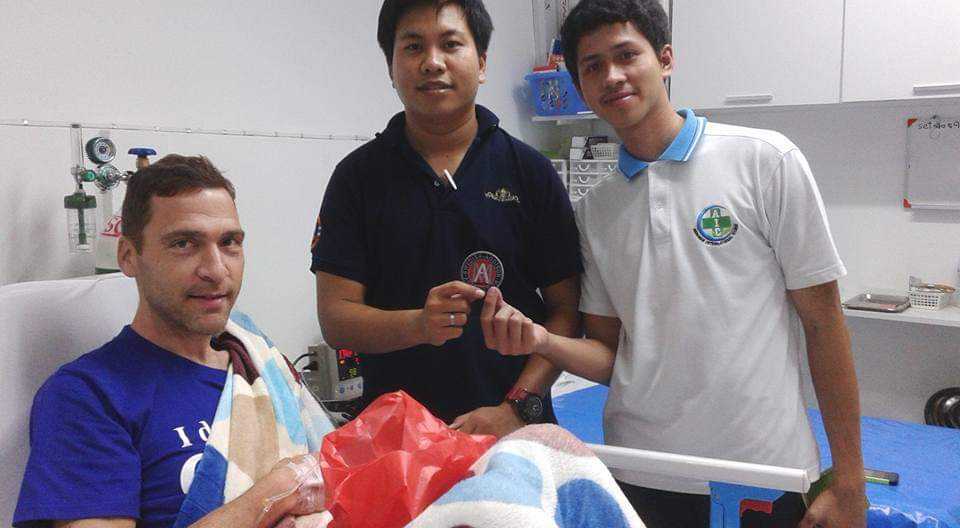When I travel today, I usually find out if the destination is a safe place with good conditions for guaranteed good care and knowledge in healthcare. In the hand luggage on the flight, I carry all medicine so that it is not exposed to large temperature differences, but above all to keep an eye on my vital medicines. I always carry extra cortisone tablets in my pocket in case I get weak or exhausted. Something that is important is that I always have 3-5 bottles of Solu-Cortef with me! You never know when you might have a crisis during the trip because there is usually stress even before the trip begins. Anything can happen at any time and then you must always have your own first aid via Solu-cortef. Secondary, but at least as important, is that if something happens, it is that you ingest liquid via drip!
I remember on a cruise in the Caribbean two years ago on New Year’s Day when I woke up and threw up. I was in a cold sweat and just wanted to get out of a sweaty bed and lie on the floor. I could barely get to the toilet and had to drag myself forward. With great luck, I managed to get myself a Solu-Cortef and fell asleep again thoroughly absorbed. Five hours later I woke up feeling really good after the incident.
Another incident was in Thailand ten years ago when I got food poisoning. Then I woke up early and threw up. We called an ambulance and contacted SOS in Copenhagen. They came and took me to a smaller hospital/care center. They told me that I had an Addison’s crisis and they had no knowledge of it or Addison’s disease. They looked for information on the internet and called my doctor. After that, I received both intravenous cortisol and a drip for half a day. As usual, I quickly got much better and I was an experience richer.
In order to always have the right amount of cortisol, I usually make sure that I don’t feel symptoms such as muscle weakness, fatigue, etc. If I’m not sure, I’d rather take a little extra cortisone than not do it.
My last trip to Greenland, Iceland and Svalbard worked perfectly. Everything is fine, but I’m trying to take it easy and not stress. An important factor is getting enough sleep and eating properly to cope with the schedule. Many factors affect Addison and so I try to stay one step ahead and think ahead.
Six months before the trip, I also contacted the hospital in Nuuk, which is the capital of Greenland, to find out if they can treat an Addison’s patient if something were to happen. They knew everything and could also get help from both Copenhagen, rescue helicopters etc. So they had covered the geographical area with certainty for me.
//Martin Norrman
